Also see: TODAY
DAY (version 1)
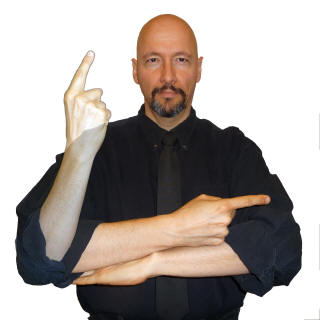 The sign for "day" is made by holding your
non-dominant arm (the left arm for most people) in
front of you, palm down, pointing right. Your left hand can be in either a
"flat handshape" or an "index finger handshape." Your
your dominant hand (the right hand for most people) can be either
an "index finger" or a "flat hand." (I don't recommend a "D"
hand, that is Signed English.) Rest your right elbow on
the back of the left hand. Your right arm should point up. Move your right arm
across your body, the hand tracing an arc while keeping the right elbow on or
very near the back of the left hand.
Note: advanced signers often do very abbreviated versions of signs. For
example, they may do the sign for day with the tips of the fingers of left hand
touching the midpoint of the right forearm instead of resting the right elbow on
the back of the left hand. Also, you might see a different palm orientation on
the dominant hand.
The sign for "day" is made by holding your
non-dominant arm (the left arm for most people) in
front of you, palm down, pointing right. Your left hand can be in either a
"flat handshape" or an "index finger handshape." Your
your dominant hand (the right hand for most people) can be either
an "index finger" or a "flat hand." (I don't recommend a "D"
hand, that is Signed English.) Rest your right elbow on
the back of the left hand. Your right arm should point up. Move your right arm
across your body, the hand tracing an arc while keeping the right elbow on or
very near the back of the left hand.
Note: advanced signers often do very abbreviated versions of signs. For
example, they may do the sign for day with the tips of the fingers of left hand
touching the midpoint of the right forearm instead of resting the right elbow on
the back of the left hand. Also, you might see a different palm orientation on
the dominant hand.
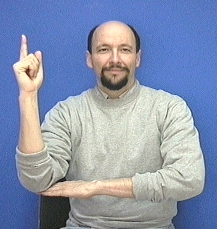
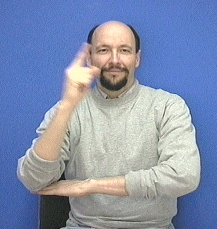

 Note:
Note:
When signing "DAY" you can use a "flat hand" (which is also sometimes called a
"b-palm") instead of an index finger.
DAY (flat hand version)
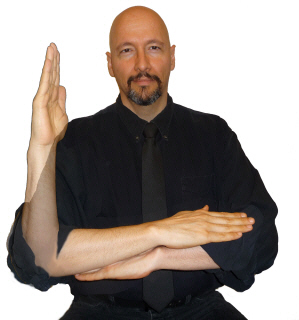
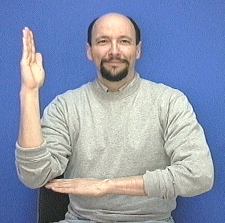
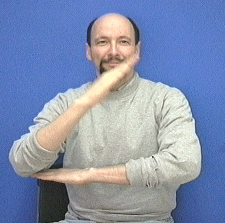

Sample sentence: "One week has how many days?"
Notes:
There are many variations for the sign "DAY." For example: "ALL-DAY"
To sign "all-day," start the flat-handed version of DAY with your dominant
"flat hand" further to the right (if you are right handed) prior to
moving it.
For an example of "all-DAY" and other variations of DAY,
see: "DAY (advanced
discussion)"